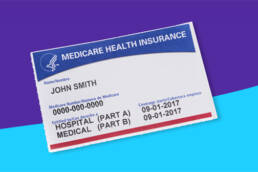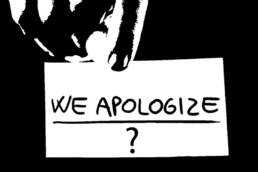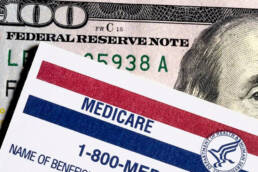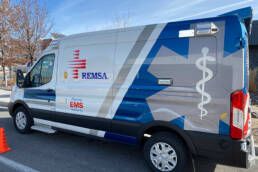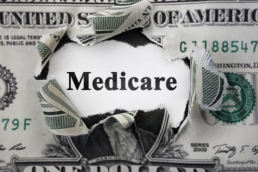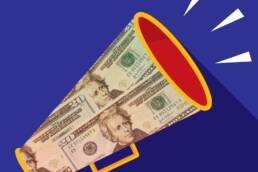Dear Toni
My Medicare begins September 1 and I have received my first bill for $660. This bill is for 4 months from September to December. I thought Medicare was a monthly premium of $164.90. If I pay the outrageous premium, then I cannot afford my car payment.
This bill for Medicare is due August 25. Does Medicare allow monthly payments for the Medicare Part B premium? I cannot have my Medicare premium taken from my Social Security check because I work and make more than Social Security allows without having to pay a penalty since I am not at my “Full Retirement Age” (FRA). Jackie, Dallas, TX
Hi Jackie:
You are correct that Americans can pay their Medicare premiums monthly by having the premium taken from their Social Security check. Social Security will automatically deduct the monthly Medicare premiums and send a letter informing the Medicare beneficiary (you) that the monthly Medicare Part B premiums are being deducted from the Social Security check.
Jackie, because you are enrolled in Medicare and have a Medicare card, I would advise you to open a Medicare.gov account. In your Medicare account is information such as:
Your Medicare Part A and Part B enrollment dates
The Medicare Part D prescription drug plan or Medicare Advantage plan you are enrolled in.
Medicare claims.
How to print a copy of your Medicare card and other information regarding your Medicare account.
And (a big surprise for you Jackie) the option to pay your Medicare premium monthly via credit, debit card, or from your checking account. This can be set up on the Medicare.gov website. One can also use a Health Savings Account (HSA) debit card to pay for the Medicare premium if they have one.
Jackie, I would urge you to set up your Medicare.gov account as quickly as possible and pay your Medicare bill immediately. If you would like to have your premium deducted directly from your bank account monthly, then use the Medicare Easy Pay option which is available on Medicare.gov. The Medicare Easy Pay application process takes 4 to 6 weeks, In the meantime, you can pay using the Medicare.gov website on a monthly basis to keep from getting behind on your payments until the Medicare Easy Pay process starts.
Personally, I started my Social Security check at my Full Retirement Age (FRA), and my Medicare premiums are now being deducted from it. Before receiving my Social Security check, I would pay my Medicare premium using a credit card on my Medicare.gov account.
If one does not stay current with their Medicare premium payments, then the Medicare Beneficiary can lose their benefits and may be charged a penalty when they re-enroll into Medicare. Please do not fall behind on your payment because you can be disenrolled from your Medicare for non-payment.
Medicare Part D prescription drug premiums need to be paid directly to the Part D insurance company that is chosen. It is not paid via the Medicare site. One can pay their Medicare prescription drug premium either directly to the prescription drug company by check or credit card.
Once one begins receiving a Social Security check, then both Medicare Part B and Part D prescription drug premiums can be taken from their Social Security check.
Toni Says: Many do not realize that they can pay their Part B premiums monthly when not receiving their Social Security check by following the rules set up by Medicare. Take your time and study this confusing Medicare process.
Call the Toni Says Medicare hotline at (832) 519-8664 or email [email protected] for assistance with Medicare issues. Toni’s books are available at www.tonisays.com with a bundle discount for Toni Says readers. Visit www.seniorresource.com/medicaremoments for other Baby Boomer needs.
Understanding Medicare’s rules on skilled nursing coverage
Dear Toni: My mother had to go into the hospital this week with a urinary tract infection and pneumonia, then she slipped and bumped her head. No concussion, but she is very weak, so we are asking that she be placed in a skilled nursing facility to build her strength back up.
Since she disenrolled at the last Medicare annual enrollment from a Medicare Advantage HMO to her new Medicare supplement, is there anything I should be aware of regarding skilled nursing?
What options will she have? My mother is on a limited income, so I would have to help her pay for her stay in case Medicare does not. — Tom, Las Vegas
Dear Tom: The Medicare Outpatient Observation Notice (MOON) applies to those with an original Medicare Part A hospital stay. It does not apply to those with Medicare Advantage plans. Since your mother is now enrolled in a Medicare supplement, she will have to follow the Medicare rule about skilled nursing care.
The MOON rule is explained in detail on page 28 of the “Medicare &You” handbook under “Am I an inpatient or outpatient?”
The handbook states, “Whether you’re an inpatient or an outpatient affects how much you pay for hospital services and if you qualify for Part A Skilled Nursing Facility care.”
Tom, here’s how this rule applies to your mother’s skilled nursing care:
■ You only become an inpatient once the hospital, not your doctor, formally admits you with a doctor’s order.
■ You are an outpatient when receiving emergency or observation services, even if it results in an overnight stay in the hospital if you have not had a formal inpatient admission.
Formal admission is extremely important in order to qualify for a skilled nursing stay in which Medicare will cover the cost.
Each day you must stay in the hospital, you or your caregiver should always ask the hospital, your doctor or a hospital social worker/patient advocate if you are an inpatient or an outpatient. When under observation as an outpatient for more than 24 hours, you must receive a Medicare Outpatient Observation Notice.
Under Part A for a skilled nursing stay, Medicare will only cover semiprivate rooms with meals, skilled nursing, and therapy services after a minimum three-day medically necessary inpatient hospital stay.
Qualifying for a skilled nursing stay can be stressful because it must be done properly. Make sure you follow the rules to ensure your stay is covered.
Toni King is an author and columnist on Medicare and health insurance issues if you have a Medicare question, email [email protected] or call 832-519-8664.
Waiting too long to enroll, plus other what-if questions on Medicare
This week’s column addresses some Medicare questions from readers.
Question: What if I did not enroll in a Medicare Part D plan when I turned 65 and I am taking an expensive medication? When can I enroll in Part D?
Answer: When one fails to enroll in a Medicare Part D plan at the right time, then Medicare’s annual enrollment period (Oct. 15 to Dec. 7 each year) is when you can enroll in a stand-alone Part D plan or a Medicare Advantage plan with Part D. The new plan will begin Jan. 1 with you receiving a Medicare Part D penalty for not enrolling at the proper time. For help with prescription drug planning, contact the Toni Says Medicare team.
What if I am on a limited income and cannot afford my Part B premium or prescription drug cost?
Contact the Medicaid office and see if you qualify for its qualified Medicare beneficiary program or specified low-income Medicare beneficiary program. Call your local Social Security office or apply online for “extra help” if you do not qualify for Medicaid. Each year the income qualifications change.
What if I did not enroll in Medicare Parts A and B when I should have because I do not want to pay that extra Part B premium each month? I do not go to the doctor, and I do not take any prescriptions. Can I enroll later?
If you are past 65 years and 90 days old, not working full time with true company benefits, and decide to enroll in Medicare Part B, then you will have a big Medicare problem. You must wait until Medicare’s general enrollment period (Jan. 1 to March 31 each year) to enroll. You will receive the infamous Medicare Part B penalty, which is a 10 percent increase in your Part B premium for each 12-month period that you could have had Part B. You will pay this late enrollment penalty for as long as you are on Medicare. With no Medicare Part B, you will have to pay 100 percent out of pocket for medical care.
What if I am past 65, have retired from work with company benefits, and need to enroll in Medicare Part B. What do I do?
If you are retiring or have been laid off past age 65, we recommend that you have your employer sign Social Security form CMS-L564, “Request for Employment Information,” and attach it to form CMS-40B, “Application for Employment in Medicare Part B.” Take both forms to your local Social Security office to enroll in Medicare Part B as quickly as possible. Once you enroll in Medicare Part B, you only have 63 days to get Medicare prescription drug coverage.
Toni King is an author and columnist on Medicare and health insurance issues if you have a Medicare question, email [email protected] or call 832-519-8664.












